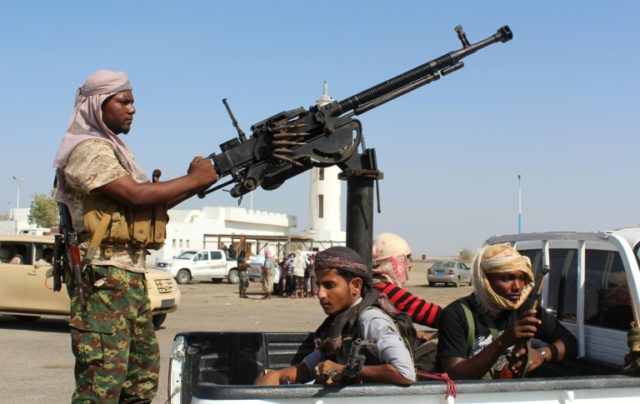The army loyal to Yemen’s internationally recognized government will invade the Yemeni capital of Sanaa if the United Nations-brokered peace talks in Kuwait — aimed at ending the year-long war in the country — fail, a spokesman for the Saudi-led Arab coalition has said.
Saudi Brig. Gen. Ahmed Asiri’s comments came as Iran-allied Houthi rebels and Yemen’s government, backed by Saudi Arabia, are trying to negotiate a peace agreement in Kuwait.
The spokesman “defended the presence of coalition troops in Yemen, saying it was meant to protect the Yemeni people, not invade the country or take its resources,” reports Al Arabiya.
Gen. Asiri is quoted as saying Saudi-led “coalition forces used precision-guided munitions to hit targets in Yemen to avoid harming civilians.”
Prompted by an appeal from the U.N., the warring parties in Yemen resumed face-to-face talks on Monday following a two-day lapse.
On Monday, Ismail Ould Cheikh Ahmed, the U.N. special envoy to Yemen, “urged the country’s warring parties to make concessions to save peace talks aimed at ending a devastating 13-month war,” reports Agence France-Presse (AFP).
“The two sides met again on Wednesday and agreed in principle on a proposal to free half of the prisoners and detainees held by both sides ahead of the holy month of Ramadan, which starts in early June,” notes Al Arabiya, adding, “They also discussed the mechanism of the prisoners’ exchange.”
A fragile U.N.-backed ceasefire between the Saudi-led coalition, which supports military units loyal to Yemen’s President Abed Rabbo Mansour Hadi, and the Shiite Houthi rebels, which are allied with armed groups who support the country’s former President Ali Abdullah Saleh, began last month.
However, the Arab coalition said earlier this week that the Saudi military had intercepted a ballistic missile launched from Yemen by Houthi rebels and their allies, reportedly the first fired since the ceasefire took effect.
“The launch of the missile at this time is a dangerous escalation by Houthi militias” and the forces of ousted President Saleh, declared the Saudi-led coalition in a statement, adding that the Arab alliance is cooperating with the international community to “maintain calm and help the Kuwait (peace) talks to succeed.”
Although it said it will continue to exert self-restraint, the coalition warned that it also “reserves the right to retaliate at the appropriate time and place” in the event that its rivals attack.
The Yemen-based al-Qaeda in the Arabian Peninsula (AQAP), considered the most dangerous branch of the jihadist group, has capitalized from the security and political chaos in Yemen, as the Saudi-led coalition primarily focuses on fighting the Houthis and their allies.
AQAP has seized large swathes of territory in Yemen and grown stronger than ever by some estimates, prompting the United States to re-enter the country’s conflict.
In March 2015, deteriorating security conditions forced the U.S. to withdraw its military personnel out of Yemen.
However, Pentagon press secretary Peter Cook told reporters on Monday that a small contingent of U.S. forces returned to Yemen, where they remain, to provide a “liaison role, in particular in support of intelligence sharing” to Saudi-led coalition activities in Yemen.
The United States has carried out four airstrikes in recent weeks against AQAP, killing 10 jihadists and injuring one, the Pentagon has announced.
In late March 2015, the Saudi-led coalition began bombing the Houthis and their allies in Yemen, as military units loyal President Hadi fought the rebels on the ground.

COMMENTS
Please let us know if you're having issues with commenting.